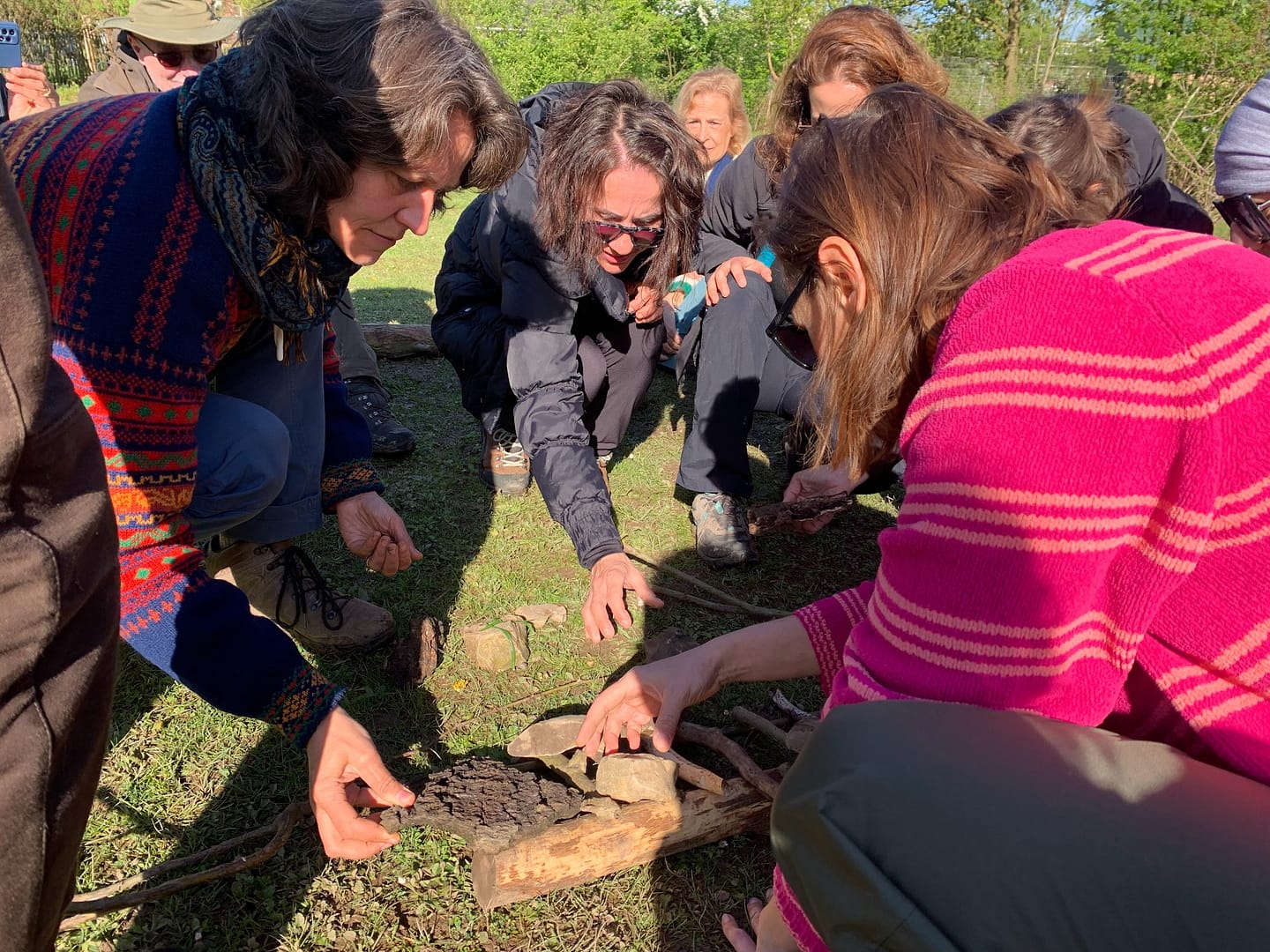by Anouk Schouten and Marleen Ruigrok
Abstract
In this 4-day training courses, participants are challenged to connect with the way children experience nature, the opportunities this entails for emotional well-being, personal and cognitive development and connection with nature. For this, the participants work constructively from self-knowledge, to awareness and practical tools to implement a nature pedagogical method within their own setting.
Nature Pedagogical training course
In this 4-day training courses, participants are challenged to connect with the way children experience nature, the opportunities this entails for emotional well-being, personal and cognitive development and connection with nature. For this, the participants work constructively from self-knowledge, to awareness and practical tools to implement a nature pedagogical method within their own setting.
The Netherlands, April 2024.
Recently we’ve had a special week at Struin Nijmegen. Together, Gröninga and Struin bonded their experience and hosted a nature pedagogical training. A group of 8 teachers came all the way from Italy and Portugal to activate their natural senses and work on their nature wisdom.

Our homebase was the Struinland, which is normally the domain of the Struin children from daycare and after-school care. From here we explored the surroundings by foot and by bike; the typical Dutch way for getting around. Which offered new challenges, faced with the greatest perseverance and pleasure.

Getting around by bike makes you more aware of the environment. In nature pedagogy, the way to get to nature is part of the learning experience.
The weather surprised us with all seasons (sun, rain, lots of wind and even hail) and therefore gave us the opportunity to experience that you don’t have to stay inside at all when it rains. Experiencing resistance helped participants become less resistant to “bad” weather.

Nature skills and preparation
“This day helped me realise that some things are doable in my context and they boosted my confidence in implementing them. Marleen’s activity was awesome and Gunther and Vera were precious in helping us design an afternoon in nature.”
The program included getting acquainted with Struin’s methods and observing the children during free nature play combined with meaningful activities. Another important part was experiencing different activities in nature, such as a foraging meditation, which brings the participants back in touch with their inner child, playing nature bingo and exploring the nature reserves in the area.
The first two days focused on one’s own connection to nature and how nature invites you to act. The third day focused on ‘How do I motivate and inspire children with different levels of nature experience and nature intelligence for nature activities’. Groninga made us enthusiastic by several games and storytelling. It was amazing how, through play, questions were raised and awareness of the natural elements was raised. On the last day, participants had the opportunity to design their own activity and try it out together. Sitting in the warm sun, the participants bonded their enthusiasm and focused on how to implement nature pedagogy back in their own setting. With a practical plan of how to start back home, we ended the course.
The participants experienced the program as very valuable and returned home inspired and excited to get started themselves.

Playing nature games; Experiencing all the things you can do with only natural elements

Dress-up and role-play!
“Every activity proposed during the first two days made me realize how, up until that moment, I hadn’t fully understood what it truly means to be connected with nature and how to encourage children to develop a high level of naturalistic intelligence. Observing closely the activities of the Struin educators and joining the groups of children in the afternoon and see how they interact with the natural environment has been really enlightening. That helped me understand the importance of free play and discovery in the development of children’s autonomy and connection to nature. I also greatly appreciated the activity led by Elizabeth on the first day because it helped me understand how a complete immersion in nature involves engaging all the senses.”
“The activity planning phase has been a very constructive moment because it allowed me to put into practice the observations made and shared in the previous days. It was the moment when I realized that I was actually starting to think about some activities for my students in light of a new perspective on the relationship between children and nature. Thanks to the training, I’ve understood how important free play in nature and autonomous discovery are for children. I’ve learned to guide children in nature using a less directive approach, encouraging their own reflections on rules and dangers of wilderness and help them activating all their senses. When designing the activities, also thanks to Marleen’s support, I always tried to keep these new teachings and the Struin philosophy in mind. Sharing and implementing the other colleagues’ activities has been very enriching too since that has inspired me to develop further activities.”





